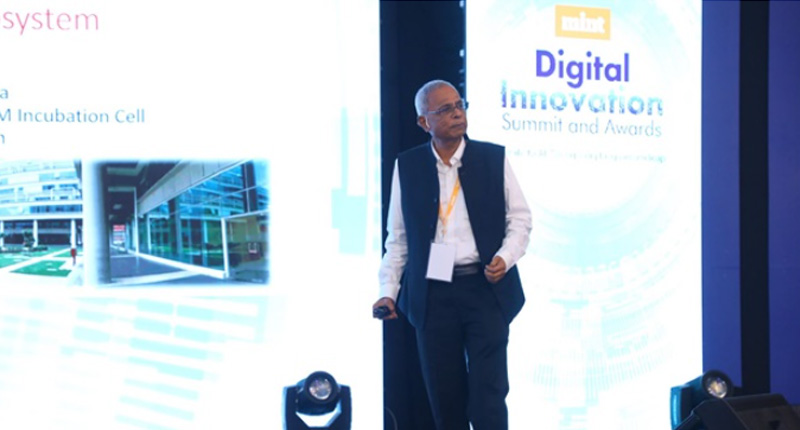The Indian Institute of Technology, Madras (IIT-M)’s incubation centre created over 300 deep-tech startups in the past 12 years, 82% of which survive beyond the first five years, said Ashok Jhunjhunwala, president of IIT-M Research Park and Incubation Cell, and a professor at the institute. Highlighting the success of deep-tech startups incubated at the institute, Jhunjhunwala said at the Mint Digital Innovation Summit on 9 June that the total valuation of startups incubated by the institute so far stands at $4.6 billion.
“The public valuation of the startups incubated at IIT-M today stands at around ₹38,000 crore, or $4.6 billion. Of our startups, at least 25 of them have managed to give back returns of over 10,000 times on initial investments made in them, over a period of eight to nine years,” he said.
Highlighting the need to create a conducive environment for graduates to focus more on building their own ideas, Jhunjhunwala said that at present, the mindset for most students is either to take up a job, or go for higher academic studies.
As a result, a third mindset of building startups need to be encouraged further in order to cultivate “a culture of building things”. He further added that innovation challenges and hackathons help generate “a lot of excitement among students about entrepreneurship”, which could further boost India’s startup economy.
However, he also called for startup founders to understand the market with more maturity, and underlined the need for top executives from across the industry to be a part of the board of directors of homegrown deep-tech startups, thus becoming mentor to their business journeys.
“Such mentors must take up the role of purely as advisors to the startups. These startups in college are started by students aged between 22 to 25 years. Therefore, you need to inculcate certain disciplines from day one. One of the ways to do so would be to conduct regular board meetings with an external board member who is completely independent, along with mentors and incubator representatives. These monthly meetings must discuss different aspects of the work — what went right, what did not, the action taken, cash flow, and general product updates,” he said.
Jhunjhunwala further added such an approach would help a fresh graduate “familiarise with the difficult aspects of the entrepreneurship journey.”“Ask them hard questions and prepare them for the fact that entrepreneurship is a difficult journey and that they may have to work without money for a long time,” he said.
Jhunjhunwala also spoke about how in the rush to develop applications around artificial intelligence (AI), a key aspect gets ignored.“We speak so much about AI and what it can do. One thing we don’t talk about is how much energy is consumed in running these systems,” he said. As an example, he said that a vast amount of energy is consumed every time users make a query to ChatGPT, and this will only increase as “more people start using such tools”.
Publication: TechCircle
Read more by clicking on the link to the featured article below:
![]()


